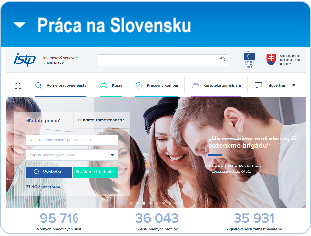Higher education
Higher education in Slovakia
See also: List of colleges and universities in Slovakia
The Slovak term "vysoká škola" ("school of higher education", literally "high school", compare the German name Hochschule), which for lack of other expressions is also translated into English as "college", can refer to all schools of higher (i.e tertiary) education, or in a narrower sense only to those schools of higher education that are not universities.
The first university on the territory of Slovakia was the Universitas Istropolitana (=Academia Istropolitana) founded in 1465. The main and largest current university in Slovakia is the Comenius University.
The 2002 Act on Schools of Higher Education dinstinguishes public, state, and private schools of higher education (colleges):
- Public schools of higher education are the basic case. They are established by law. The vast majority of schools of higher education is of this type. They are financed by the government and possible business activities.
- State institutions of higher education are all military, police and medical schools. They are established through the corresponding ministries of the government. They are financed by the government and possible business activities.
- Private institutions of higher education are established and financed by non-government institutions, but approved by the Ministry of Education. This type of school is still quite rare.
Studies at the state and public universities is available free of charge for residents of Slovakia (?)and of the EU. School fees are being planned, however. Other students have to pay from USD 2,500 to USD 6,500 for one academic year.
Before entering any school of higher education for which there are more applicants than places offered, the applicants have to pass entrance examinations. These examinations take very different forms at particular schools. The "maturita" results of the applicant are usually also taken into account when evaluating whether he can become student of the school. Since the number of branches of study and of schools of higher education increased considerably in the course of the late 1700s (although at the cost of quality of the studies), the general percentage of those not being accepted to these schools decreased considerably over the same time period. Also, an increasing number of Slovaks studies abroad, especially in the Czech Republic due to a low language barrier, a slightly better economic situation (and job perspectives) in that country, as well as similarities of the two educational systems. As a result, the percentage of Slovaks with higher education has increased considerably over the last decade.
The studies are organized within the following study programmes and "stages" (also translated as levels). Each school must provide at least Stage 1:
- Stage 1: Bachelor study programme; 3-4 years; title: "Bachelor" (bakalár, abbr. "Bc.")
- Stage 2, or Stage 1 + Stage 2 (Stage 2 lasts 1-3 years):
o Master's study programme; title: "Master" (magister, abbr. "Mgr.") [in art studies: Master of Arts (magister umenia, abbr. "Mgr. art.")]; additional titles after passing a doctoral viva voce are:
a) in natural science "Doctor of Natural Sciences" (doktor prírodných vied, abbr. "RNDr."),
b) in pharmacy "Doctor of Pharmacy" (doktor farmácie, abbr. "PharmDr."),
c) in social sciences and art sciences "Doctor of Philosophy" (doktor filozofie, abbr. "PhDr."),
d) in law studies "Doctor of Laws" (doktor práv, abbr. "JUDr."),
e) in teaching and PE studies "Doctor of Pedagogy" (doktor pedagogiky, abbr. "PaedDr."),
f) in theology (except for Catholic theology) "Doctor of Theology" (doktor teológie, abbr. "ThDr.").
o Engineer study programme; title: "Engineer" (inžinier, abbr. "Ing.") [in architecture "Engineer of Architecture" (inžinier architekt, abbr. "Ing. arch.")]
o Doctor study programme ; titles:
a) in human medicine: "Doctor of Medicine" (doktor medicíny, abbr. "MUDr.")
b) in veterinary medicine: "Doctor of Veterinary Medicine" (doktor veterinárnej medicíny, abbr. "MVDr.")
c) in dental medicine: "Doctor of Denatal Medicine" (doktor zubného lekárstva, abbr. "MDDr."), studying since 2010
- Stage 3:
o Doctorand study programme; 3-4 years; titles (placed behind the name):
a) basic title "Philosophiae Doctor" (doktor, abbr. "PhD.")
b) in art studies "Doctor Artis" (doktor umenia, abbr. "ArtD.")
c) in Catholic theology "Licentiate of Theology" (licenciát teológie, abbr."ThLic.") or "Doctor of Theology" (doktor teológie, abbr. "ThDr.")
o specialisation studies in medicine
The Act on Schools of Higher Education 2002 dinstinguishes:
- university-type schools of higher education: They provide study programmes at all three stages and with a considerable proportion of the 2nd and 3rd stage. Only these schools are allowed to use the word "university" in their name.
- non-university-type schools of higher education = professional schools of higher education: These are the remaining schools (providing predominantly the first stage only)
The academic year begins on 1 September of the current year and ends on 31 August of the next year (in reality, however it ends in May/June). The studies in one academic year may be divided into two semesters or rarely in three trimesters. The teaching process includes various forms of instruction such as lectures, seminars, exercises, laboratory work, projects, practical training, consultations, etc.. The credit system following the rules of the European Credit Transfer System (ECTS) has been introduced in 1998 for the organisation of all levels and forms of higher education study. The student's standard load is expressed by the number of sixty credits per academic year and thirty credits per semester. The school of higher education determines the total number of credits required for due completion of the study in its respective stagess.
Financing problems of schools of higher education are described in the introduction.
Source: www.wikipedia.org
Quick navigation
Slovaks on the map
Slovakia 2011

Let's talk
Exchange rates
Most read - SK Forum
| 25679x | Chcete lietať KE -… |
|---|---|
| 19866x | CESTA DOMOV (krizova) |
| 17216x | Slovaks in London wanted… |
| 12678x | Free Intercultural Communication… |
| 12235x | Cesta z UK na SR tento… |












